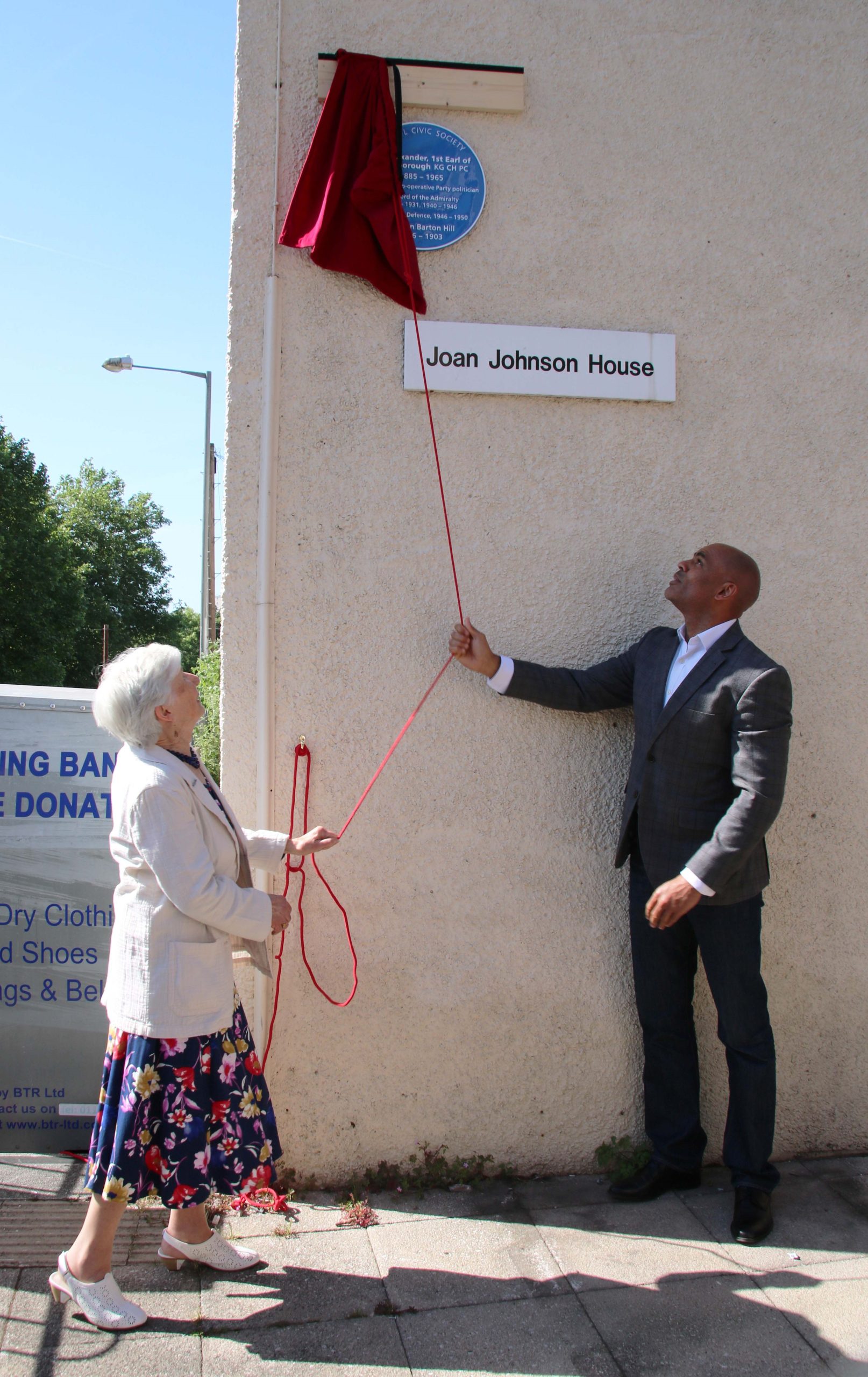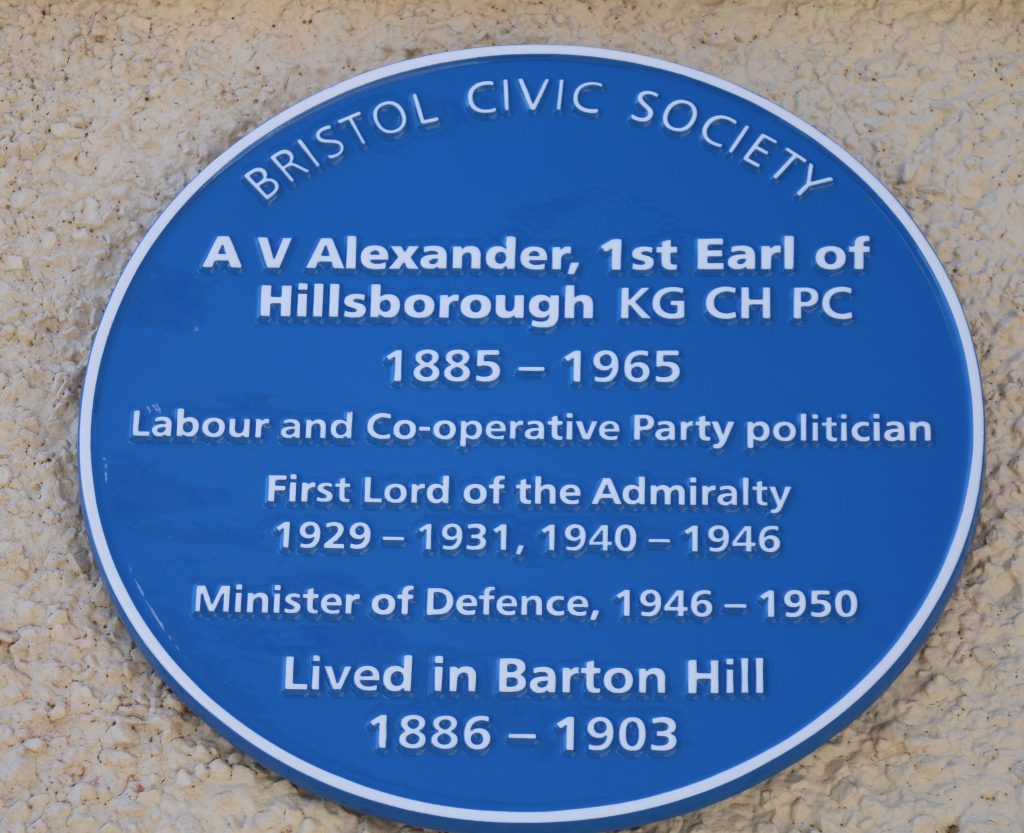Wellspring Settlement hosts plaque for wartime leader
Wellspring Settlement recently played host to the unveiling ceremony of a new Blue Plaque, celebrating the time Albert Victor (AV) Alexander lived in Barton Hill. Deputy CEO Paul Simpson welcomed Jenny Hunt, the granddaughter of AV Alexander, who flew in from the US to attend along with other members of his family. Mayor Marvin Rees was in attendance, along with the Bristol Civic Society, and the Barton Hill History Group.
AV moved to Barton Hill when he was 16 months old, after spending the first months of his life in Weston-Super-Mare. His family relocated after the death of his father, and he attended Barton Hill Boys school on Meyrick Street. The house he lived in during his years in Barton Hill is no longer standing, but Wellspring Settlement are proud to host the Blue Plaque commemorating the time such a high achiever walked our local streets.
 “I just wanted to thank you and all the team for all your hard work towards Fridays Blue Plaque unveiling event, we really did feel so very grateful to be invited to the event, and join together as family members. Even with so many new faces and unmet distant relations, your hospitality welcomed us in common and really made the afternoon a joyous event.”
“I just wanted to thank you and all the team for all your hard work towards Fridays Blue Plaque unveiling event, we really did feel so very grateful to be invited to the event, and join together as family members. Even with so many new faces and unmet distant relations, your hospitality welcomed us in common and really made the afternoon a joyous event.”
AV left school in 1899, declining the opportunity to attend St George Higher Grade School as he thought his mother would not be able to afford it and that he would get nothing from furthering his education. Instead, he started working aged thirteen, first for a leather merchant, and five months later as a junior clerk with the Bristol School Board.
He moved to London as Parliamentary Secretary to the Cooperative Union and was later adopted as the Cooperative candidate for the Hillsborough Division of Sheffield. He entered Parliament in 1922.
In 1929, Alexander became a member of the Labour cabinet, eventually becoming First Lord of the Admiralty. Following the outbreak of World War II, Alexander worked closely with Winston Churchill in his role as First Lord of the Admiralty. He was committed his role, often sleeping in his office, and he took a keen interest in the welfare of sailors.
He visited troops a few days after D-Day in 1944, and was the first British minister to go to France since the occupation in 1940. His radio broadcasts and public appearance boosted morale and made him very popular inside and outside the service. As a working-class politician in a top position, he was an important figure for national unity. He had regular meetings with Churchill when in London, acting as an advisor; they were good friends and Churchill arranged for AV to receive an Honorary Degree from the University of Bristol, of which Churchill was Chancellor.
AV decided not to seek re-election in the 1950 general election. He retired from the Commons and was raised to the peerage as Viscount Alexander of Hillsborough three months before his sixty-fifth birthday. Alexander retired from front-bench politics after the 1951 general election, and from 1964 he sat regularly in the House of lords becoming Leader of the Opposition. He bought a farm in Essex and, was created Baron Weston-Super-Mare in December 1955, Earl Alexander of Hillsborough in 1963, and was appointed a Knight of the Garter in 1964. He finally stood down as leader of the Labour peers in the run-up to the general election in October 1964. Aged 79, Lord Alexander of Hillsborough died early in the new year, fourteen days before Winston Churchill.
“The atmosphere in the Settlement Centre is truly outstanding, the work and pride you have in the local community is clear to see and is certainly to be celebrated and recognised.”


